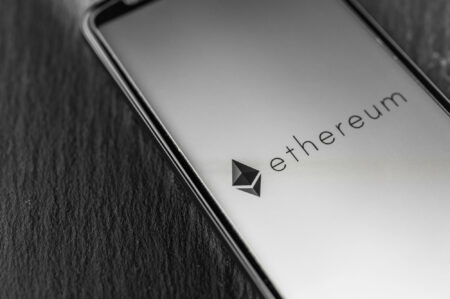What has been happening around Blockchain Technology and Cryptocurrencies this week? The most relevant local and international developments as well as appealing background reports in a pointed and compact way in retrospect in our weekly review.
Central bank digital currencies (CBDCs) are coming. The European Central Bank (ECB) is working intensively on a digital euro, and the Chinese central bank has already put digital yuan into circulation. CBDCs open up new fiscal policy opportunities for central banks. In addition they enable the precise measurement and tracking of money flows. However, it is precisely in this area where concerns are mounting about protecting the privacy of its users. The Swiss National Bank (SNB) intends to counter these concerns. In a working paper on "Retail CBDCs," the institute released a study on the topic. The central bank sees potential in "GNU Taler," a project of the Bern University of Applied Sciences.
Currently, the largest stablecoin issued by a private company is Tether (USDT). USDT is pegged to the price of the US dollar and is the most liquid cryptocurrency with a daily trading volume of over $100 billion. The token is managed by Tether Limited, which was indicted by US prosecutors in 2019. The company was accused of not backing all of its tokens with real dollars and thus manipulating the market. After two and a half years of litigation, the parties agreed to settle the lawsuit. Crypto exchange Bitfinex provided authorities with more than 2.5 million pages of documents to answer their questions. Full cooperation with the attorney general's office has now paid off.
So-called "non-fungible tokens" (NFTs) are an emerging segment in the crypto world. Non-fungible means that these tokens are unique and cannot be replicated. Thus, NFTs are ideal for artwork and collectibles. Because the tokens reside on a public blockchain, their ownership can be verified clearly. The NFT tokens themselves are as indestructible as the blockchain on which they reside. Ownership is governed by the specific smart contract. Back in October, a digital art collection in the form of NFTs was sold for $800,000. This record has since been broken several times. An insight into the rapidly growing field of digital art.
Andreas Antonopoulos is a best-selling author, speaker, teacher and expert on Bitcoin and open blockchain technologies. He has worked as a lecturer for the free course "Introduction to Digital Currencies" at the University of Nicosia. Together with the co-author of the course curriculum, Antonopoulos has written two technical books for programmers, "Mastering Bitcoin" and "Mastering Ethereum." Speaking to CVJ.CH, the crypto expert comments on tokenization and more.
In addition, one downside of the growth on the Ethereum blockchain are the rising transaction fees. With a large number of NFT and DeFi applications relying on it, the network is heavily utilized. Ethereum Improvement Proposal 1559 - also known as EIP-1559 - aims to provide a remedy. It proposes to dynamically adjust fees based on volume. A portion of the transaction fees paid to miners would be additionally "burned" and the volatility of gas fees would be fixed. Ethereum, unlike Bitcoin, has no preprogrammed cap on Ether in the protocol. The EIP-1559 proposal could bring a deflationary impact to the total supply of Ether in the long run. The proposal would improve the user experience in particular and could be implemented as early as July, according to a developer.
Selected articles in the weekly review:
Concerns about privacy protection frequently arise with digital central bank currencies (CBDCs). An SNB working paper addresses the issue with an alternative: The "Taler" project from the Bern University of Applied Sciences.
https://cryptovalleyjournal.com/hot-topics/news/central-bank-digital-currency-cbdc-with-privacy/
The U.S. Attorney's Office is dropping its lawsuit against the company behind the largest stablecoin, USDT.
Non-fungible tokens (NFT) represent unique value on the blockchain. They can be used for art, collectibles, and digital property rights. An overview of the NFT market.
Can cryptocurrencies become mainstream? How will blockchain technology affect our lives?
A groundbreaking proposal for the Ethereum protocol could be implemented this summer.
Would you like to receive the Weekly review and other interesting formats via push message?




